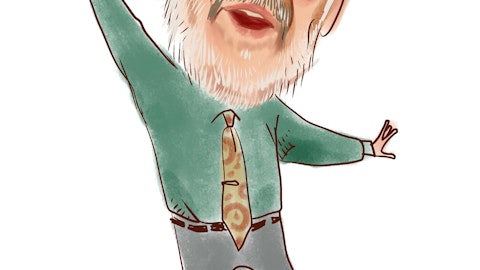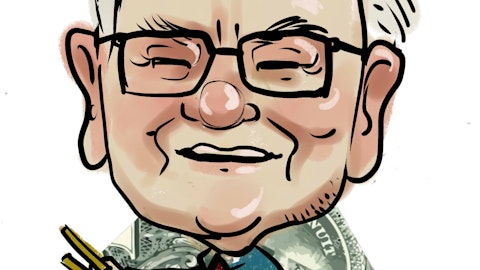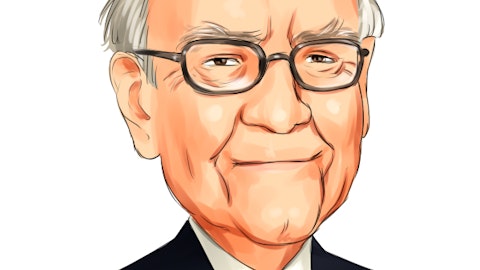Like all investors, I pay attention to what Warren Buffett is doing, not least because he has the ability to move the markets, which can be handy in formulating an investment strategy. However, recently I was surprised by his increased position in DIRECTV (NASDAQ:DTV)
DirecTV could be a good investment, income and cash flows are growing while the company continues to increase investor returns. However, there is one thing that worries me and that is company debt.
DIRECTV (NASDAQ:DTV)’s debt is growing rapidly, both on a numeric and gearing basis. (I should point out that DirecTV is forecast to start reducing its net debt position over the next few years. Although, I would be wary of this forecast as it is only a forecast and as of yet, the company has not shown any signs of reducing its debt. Indeed, as DirecTV has been rapidly increasing its debt, I would be inclined to believe that the company is more likely to increase its debt rather than reduce it in the future.)
DirecTV’s Debt

Net debt at DirecTV is rising rapidly, it is up roughly 700% since 2007 (left axis). The right axis is a gearing level of net debt to EBIT as a comparison.
Debt has been rising much faster than earnings, which has produced a worrying looking debt profile. Financing costs (blue) have roughly tripled since 2007 but low interest rates mean that the company is still paying a relatively low amount to finance its debt.
Why is debt rising?
So, why is debt rising at DIRECTV (NASDAQ:DTV), when the company has been generating very healthy cash flows over the past five years; free cash flow has been coming in at about $2 billion a year since 2009.
| $US Millions | 2007 | 2008 | 2009 | 2010 | 2011 |
| Cash flow from operations | 3,645 | 3,910 | 4,431 | 5,206 | 5,185 |
| Cash flow from investing | -2,822 | -2,388 | -2,194 | -3,099 | -3,022 |
| Free Cash Flow | 823 | 1522 | 2,237 | 2,107 | 2,163 |
| Cash flow from financing | -2,239 | -600 | -1,637 | -3,210 | -2,792 |
| Net Change In Cash | -1,420 | 922 | 600 | -1,100 | -629 |
It appears that all of DirecTV’s free cash is being spent by the company on financing activities.
A more detailed look at the company’s financing cash flow reveals the flowing:
| Change in Capital Stock | -1,900 | -3,070 | -1,660 | -5,070 | -5,500 |
| Debt Issuance (Buyback) | -339 | 2,420 | 207 | 2,070 | 2,780 |
| Cash flow from financing | -2,239 | -600 | -1,637 | -3,210 | -2,792 |
DirecTV is spending 200% of its free cash flow on stock buybacks. In fact, as the company is spending twice as much as it is earning on buying back stock, DirectTV is having to issue debt to pay the balance.
In particular, DirecTV spent $5.5 billion on buying back stock in 2011, which was about double the cash the company had available. So, as shown above, DirecTV issued $2.7 billion in debt to finance the part of the buyback it could not afford. This has been occurring since 2009 – DirecTV was buying back stock before 2009 but it was not borrowing as much to finance the buyback.
Personally, I believe that borrowing money to buy back stock does not make much sense. Especially, when the company has negative shareholder equity (total company liabilities are larger than total company assets) and the share price is reaching an all time high.
| $US Billions | 2010 | 2011 | 2012 |
| Total Assets | 17.9 | 18.4 | 20.5 |
| Total Liabilities | 17.9 | 21.3 | 25.6 |
| Total Shareholder Equity | -0.2 | -3.1 | -5.4 |

DirecTV’s share price is reach record highs and the company keeps borrowing money to buy back stock.
Competitors
So what do DirecTV’s finances look like when compared to its competitors in the sector? Is DirecTV the only company that has this large amount of borrowing or it is universal across the sector?





